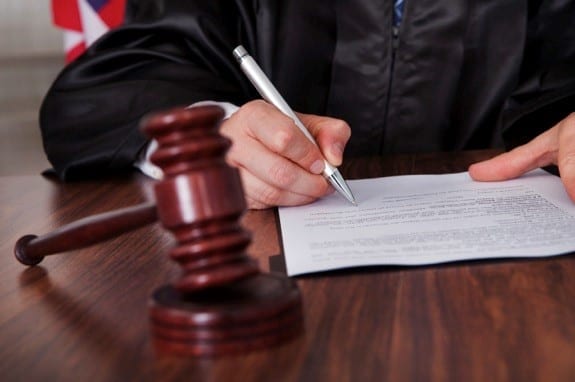Felonies vs. Misdemeanors: What’s The Difference?
When you are charged with a crime, you will be given a specific name and classification of the crime you are charged with. Each state has its own way of classifying crimes the terms “felony” and “misdemeanor” are universal – even if they don’t always mean the same thing everywhere.
So what do these terms mean in Illinois? How are crimes classified? What does it mean to be a “convicted felon”?
Illinois has three classifications of misdemeanors and five classifications of felonies. This can get confusing, especially if you are trying to reduce your charge or avoid the lifelong consequences that come with being a convicted criminal. Let’s explore the different types of convictions, penalties, and ways that these classifications can help you in court.
Misdemeanor Convictions
Misdemeanors are reserved for criminal acts that are considered less severe. You can still face up to one year of jail time and heavy fines for certain misdemeanor convictions, but the penalties are not as severe as those for felony convictions.
The following include examples and the penalties for the different classes of misdemeanors in Illinois:
- Class A Misdemeanor (e.g. damage to property, prostitution, DUI): up to one year in jail, up to two years probation, up to $2,500 in fines
- Class B Misdemeanor (e.g. possession of between 2.5-10 grams of marijuana): up to six months in jail, up to two years probation, up to $1,500 in fines
- Class C Misdemeanor (e.g. disorderly conduct): up to one month in jail, up to two years probation, up to $1,500 in fines
If you are convicted of multiple misdemeanors or violate the rules of your probation, you may face felony charges. Do not assume that all misdemeanor charges are just misdemeanor charges. Each charge should be treated seriously.
Felony Convictions

Felonies are reserved for criminal acts that are considered more serious. Sentencing for felonies will always include over a year of jail time, and usually fines of over $25,000.
The following include examples and the penalties for the different classes of felonies in Illinois:
- Class X Felony (e.g. aggravated criminal sexual assault, battery with a firearm): mandatory prison sentence with no probation, 6-30 years in prison, up to $25,000 in fines
- Class 1 Felony (e.g. criminal sexual assault, theft of over $10,000): 4-15 years in prison, up to $25,000 in fines
- Class 2 Felony (e.g. arson, criminal transmission of HIV/AIDS): 3-7 years in prison, fines up to $25,000
- Class 3 Felony (e.g. aggravated battery): 2-5 years in prison, fines up to $25,000
- Class 4 Felony (e.g. stalking, aggravated assault, felony DUI): minimum of one year in prison
We’ve written in previous posts about the effect that aggravating factors can have on felony sentencing. If aggravating factors were present in your felony case, you may face up to twice the sentence that we have listed above.
Penalties for felony convictions do not just stop at fines and prison time, either. Felonies are more severe than misdemeanors and can have a serious impact on your employment, living situation, and rights.
The Interesting Case of the Illinois DUI

You may have noticed that DUI is listed as two separate examples: Class 4 felony and Class A misdemeanor. So how is the same crime listed twice – in two very different categories?
Having the same crime in different categories is actually quite common. Each crime is different. Different circumstances yield different penalties and charges. Mitigating factors or certain evidence can lead the court to believe that your charge and sentence should be changed or reduced. Aggravating factors can increase your sentence.
For example, aggravated DUI usually involves bodily harm to someone in your or someone else’s car. This type of charge can bump you up to a Class 2, 3, or 4 felony. Simply being caught at a sobriety checkpoint or being pulled over for swerving may merely yield a Class A misdemeanor. Both charges, however, should be taken seriously, not only to reduce your sentence, but also to reduce future sentencing.
In the case of DUI, a first offense is considered a Class A misdemeanor. There are ways to get your charge changed to reckless driving. Often, a plea bargain (also known as a “wet reckless”) is a common way to change your charge. You will still have to face the penalties of a Class A misdemeanor, but if you are charged a second time for DUI, that first DUI charge will not be on your record and will not have to face felony charges.
This may seem confusing, but can also help you in the long run if you have received multiple criminal convictions.
For more information on multiple convictions, how to reduce your sentence, and the lifelong consequences of felony and misdemeanor charges, contact an Illinois criminal defense lawyer.
About the Author:
Andrew M. Weisberg is a former felony prosecutor who now serves as a defense attorney in the greater Chicago area. He has extensive experience in handling all types of criminal cases, from sex offenses and domestic violence to retail theft-related crimes, Murder, and drug crimes.







 Blog Home
Blog Home 










